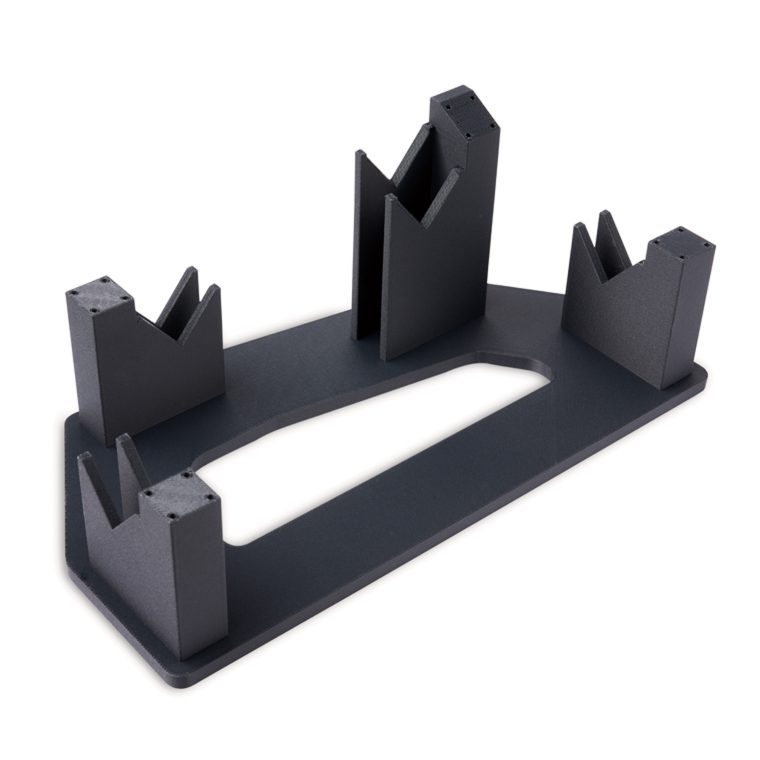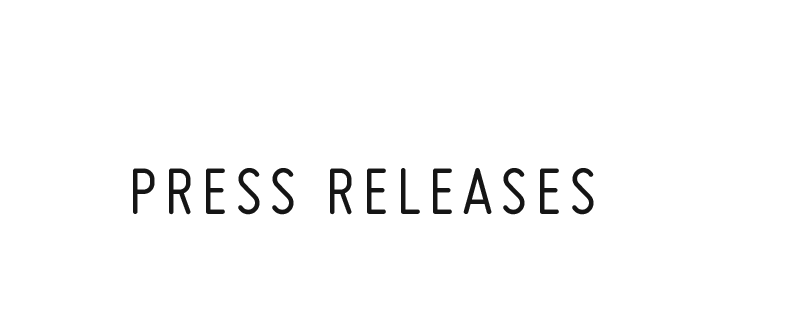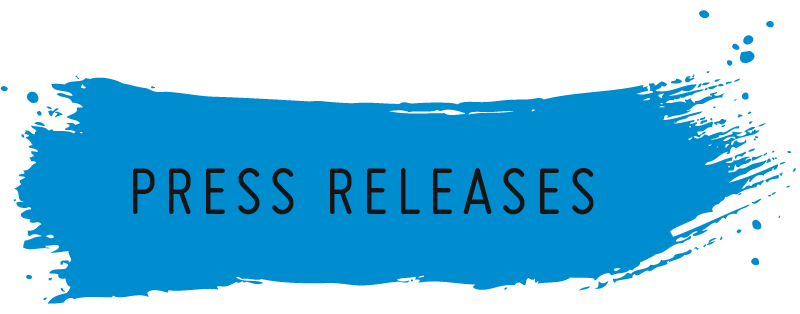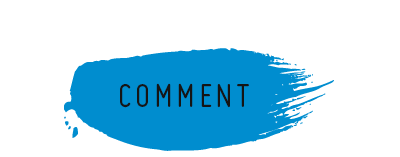- 3D Print Bureau
- 6K
- Agmatix
- Airwayz
- AM-Flow
- Appadda
- Caracol
- CG Trader
- CyberOptics
- e-Xstream
- GenCell
- GreenEye
- Impossible Objects
- Incus Media
- InkBit
- ITG
- JPB Systeme
- KeyProd
- Landa
- LEO Lane
- Lumet
- Magic Software
- MakerBot
- Marketiger
- Nano Dimension
- Paragon Rapid Technologies
- PearlX
- Plant & Bean
- Redefine Meat
- Replique
- Ripples
- Sakuu Corporation
- SolarEdge
- StoreDot
- Stratasys
- Sunrock
- The Bespoke Group
- Trigo
- UltiMaker
- Xjet
STRATASYS INTRODUCES CARBON FIBER MATERIAL FOR F123 SERIES 3D PRINTERS
Strong, lightweight, ABS-based material is specifically formulated for applications such as manufacturing tooling, jigs and fixtures
EDEN PRAIRIE, Minn. & REHOVOT, Israel, Feb. 16, 2021 – Stratasys Ltd. (NASDAQ: SSYS) today introduced a new ABS-based carbon fiber material for its award-winning line of F123 Series™ 3D printers, the first composite material for the platform. Carbon fiber materials have proven extremely popular on Stratasys’ industrial-scale FDM® 3D printers for a variety of end-use applications such as jigs, fixtures, and tooling. With FDM® ABS-CF10, Stratasys now makes carbon fiber much more accessible to the engineering and manufacturing community with high-performance F170™, F270™, and F370™ 3D printers.
The material properties of FDM ABS-CF10, featuring 10% chopped carbon fiber, make it a compelling alternative to metal parts. In fact, the material is 15% stronger and more than 50% stiffer than standard ABS, without the weight of metal, and can be printed with a high degree of accuracy. QSR Support™ water-soluble material makes it possible to 3D print intricate and complex parts without time-consuming manual support removal.
UK-based Marshall Aerospace and Defence Group specializes in the conversion and modification of military, civil, and business aircraft, along with defense vehicle engineering and shelter manufacturing. The company uses both Fortus® 450mc and F370 3D printers for a variety of tooling applications.
“All the tooling we create has different and often unique requirements,” said Chris Botting, materials and environmental engineering manager at Marshall. “Our F370 3D printers offer us the flexibility to choose from a wide variety of materials based on application demands while still producing functional parts. 3D printing parts that we historically would have made of metal has led to a significant cost reduction compared to machining the part out of aluminum, while reducing overall part weight. We can’t wait to begin to realize the benefits of FDM ABS-CF10 for creating manufacturing aids like we have with our other carbon fiber materials.”
Stratasys’ internal analysis suggests the additive manufacturing market for polymer jigs and fixtures is expected to grow at a 14.2% annual rate between 2019 and 2023, to nearly $600 million, double the growth rate of the prior four years. With its FDM ABS-CF10 material, Stratasys is particularly focused on addressing applications in the aerospace, automotive, industrial, and recreational manufacturing industries. Parts applications include end effectors used with industrial robots, ergonomic aids such as lift assists and hand tools, and alignment fixtures on assembly lines.
“There is a reason why manufacturers are increasingly turning to 3D-printed carbon fiber materials,” said Stratasys Senior Vice President of Manufacturing Dick Anderson. “It’s incredibly strong, versatile, and lightweight. We want to enable all our FDM customers to take advantage of those material characteristics. Introducing FDM ABS-CF10 is a significant step in growing 3D printing’s presence in the global manufacturing industry.”
The FDM ABS-CF10 material is scheduled to be available in April 2021, and orders are being taken now. Learn more about carbon fiber material for the F123 Series online.
-
 ABS-CF10 offers excellent stiffness for alignment tools like this weldment fixture
ABS-CF10 offers excellent stiffness for alignment tools like this weldment fixture
Click here to download 300dpi images
STRATASYS PRÉSENTE UN MATÉRIAU FIBRE DE CARBONE POUR LES IMPRIMANTES 3D DE LA SÉRIE F123
Le matériau ABS, solide et léger, est spécialement formulé pour des applications telles que la fabrication d’outils, de gabarits et de dispositifs.
EDEN PRAIRIE, Minn. & REHOVOT, Israël, 16 février 2021 – Stratasys Ltd. (NASDAQ : SSYS) a présenté aujourd’hui un nouveau matériau en fibre de carbone à base d’ABS pour sa gamme primée d’imprimantes F123 Series™ 3D, le premier matériau composite pour la plate-forme. Les matériaux en fibre de carbone se sont avérés extrêmement populaires sur les imprimantes 3D FDM® à l’échelle industrielle de Stratasys pour une variété d’applications finales telles que les gabarits, les montages et l’outillage. Avec le FDM® ABS-CF10, Stratasys rend désormais la fibre de carbone beaucoup plus accessible à la communauté des ingénieurs et des fabricants grâce aux imprimantes 3D haute performance F170™, F270™ et F370™.
Les propriétés du matériau FDM ABS-CF10, composé de 10 % de fibres de carbone coupées, en font une alternative convaincante aux pièces métalliques. En fait, le matériau est 15 % plus résistant et plus de 50 % plus rigide que l’ABS standard, sans le poids du métal, et peut être imprimé avec un haut degré de précision. QSR Support™ Le matériau hydrosoluble permet d’imprimer en 3D des pièces complexes sans avoir à retirer manuellement le support, ce qui prend beaucoup de temps.
Le groupe Marshall Aerospace and Defence, basé au Royaume-Uni, est spécialisé dans la conversion et la modification d’avions militaires, civils et d’affaires, ainsi que dans l’ingénierie des véhicules de défense et la fabrication d’abris. La société utilise les imprimantes 3D Fortus® 450mc et F370 pour diverses applications d’outillage.
“Tous les outils que nous créons ont des exigences différentes et souvent uniques”, a déclaré Chris Botting, responsable de l’ingénierie des matériaux et de l’environnement chez Marshall. “Nos imprimantes 3D F370 nous offrent la possibilité de choisir parmi une grande variété de matériaux en fonction des exigences de l’application tout en produisant des pièces fonctionnelles. L’impression 3D de pièces que nous aurions historiquement fabriquées en métal a permis de réduire considérablement les coûts par rapport à l’usinage de la pièce en aluminium, tout en réduisant le poids total de la pièce. Nous sommes impatients de commencer à réaliser les avantages de l’ABS-CF10 FDM pour créer des aides à la fabrication comme nous l’avons fait avec nos autres matériaux en fibre de carbone”.
L’analyse interne de Stratasys suggère que le marché de la fabrication d’additifs pour les gabarits et les montages en polymère devrait croître à un taux annuel de 14,2% entre 2019 et 2023, pour atteindre près de 600 millions de dollars, soit le double du taux de croissance des quatre années précédentes. Avec son matériau FDM ABS-CF10, Stratasys se concentre particulièrement sur les applications dans les secteurs de l’aérospatiale, de l’automobile, de l’industrie et des loisirs. Les applications des pièces comprennent les effecteurs terminaux utilisés avec les robots industriels, les aides ergonomiques telles que les aides de levage et les outils à main, et les dispositifs d’alignement sur les chaînes de montage.
“Il y a une raison pour laquelle les fabricants se tournent de plus en plus vers les matériaux en fibre de carbone imprimés en 3D”, a déclaré Dick Anderson, vice-président senior de la fabrication chez Stratasys. “C’est incroyablement solide, polyvalent et léger. Nous voulons permettre à tous nos clients FDM de profiter de ces caractéristiques. L’introduction de l’ABS-CF10 de FDM est une étape importante dans la croissance de la présence de l’impression 3D dans l’industrie manufacturière mondiale”.
Le matériau FDM ABS-CF10 devrait être disponible en avril 2021, et les commandes sont prises dès maintenant. Pour en savoir plus sur le matériau en fibre de carbone pour la série F123, consultez le site.
-
 L'ABS-CF10 offre une excellente rigidité pour les outils d'alignement comme ce dispositif soudé
L'ABS-CF10 offre une excellente rigidité pour les outils d'alignement comme ce dispositif soudé
Click here to download 300dpi images
STRATASYS STELLT KOHLEFASERMATERIAL FÜR DIE 3D-DRUCKER DER F123 SERIE VOR
Das robuste, leichte, ABS-basierte Material wurde speziell für Anwendungen wie Fertigungswerkzeuge, Vorrichtungen und Halterungen entwickelt
EDEN PRAIRIE, Minn. & REHOVOT, Israel, 16. Februar 2021 – Stratasys Ltd. (NASDAQ: SSYS) hat heute ein neues ABS-basiertes Kohlefasermaterial für seine preisgekrönte Linie von 3D-Druckern der F123 Serie™ vorgestellt, das erste Verbundmaterial für die Plattform. Kohlefasermaterialien haben sich auf den FDM® 3D-Druckern von Stratasys im industriellen Maßstab für eine Vielzahl von Endanwendungen wie Vorrichtungen und Werkzeuge als äußerst beliebt erwiesen. Mit FDM® ABS-CF10 macht Stratasys nun Kohlefaser für die Technik- und Fertigungsgemeinschaft mit den leistungsstarken F170™, F270™ und F370™ 3D-Druckern viel zugänglicher.
Die Materialeigenschaften von FDM ABS-CF10, das 10 % kurze Kohlefaser enthält, machen es zu einer überzeugenden Alternative zu Metallteilen. Tatsächlich ist das Material 15 % robuster und mehr als 50 % starrer als Standard-ABS, ohne das Gewicht von Metall, und kann mit einem hohen Maß an Genauigkeit gedruckt werden. Das wasserlösliche QSR Support™-Material ermöglicht den 3D-Druck komplizierter und komplexer Bauteile ohne zeitaufwändige manuelle Enttfernung der Stützstruktur.
Die in Großbritannien ansässige Marshall Aerospace and Defence Group ist auf die Umrüstung und Modifikation von Militär-, Zivil- und Geschäftsflugzeugen sowie auf die Konstruktion von Verteidigungsfahrzeugen und die Herstellung von Schutzräumen spezialisiert. Das Unternehmen nutzt sowohl Fortus® 450mc als auch F370 3D-Drucker für eine Vielzahl von Werkzeuganwendungen.
“Alle Werkzeuge, die wir herstellen, haben unterschiedliche und oft einzigartige Anforderungen”, sagt Chris Botting, Materials and Environmental Engineering Manager bei Marshall. “Unsere F370 3D-Drucker bieten uns die Flexibilität, je nach Anwendungsanforderungen aus einer Vielzahl von Materialien zu wählen und trotzdem funktionale Bauteile zu produzieren. Der 3D-Druck von Bauteilen, die wir früher aus Metall hergestellt hätten, hat zu einer erheblichen Kostenreduzierung im Vergleich zur maschinellen Bearbeitung des Teils aus Aluminium geführt und gleichzeitig das Gesamtgewicht des Bauteils reduziert. Wir können es kaum erwarten, die Vorteile von FDM ABS-CF10 für die Herstellung von Fertigungshilfsmitteln zu nutzen, so wie wir es mit unseren anderen Kohlefasermaterialien getan haben.”
Nach einer internen Analyse von Stratasys wird erwartet, dass der Markt für additive Fertigung für Werkzeuge und Vorrichtungen aus Polymeren zwischen 2019 und 2023 mit einer jährlichen Rate von 14,2 % auf fast 600 Mio. US-Dollar wachsen wird, was einer Verdopplung der Wachstumsrate der letzten vier Jahre entspricht. Mit seinem FDM-Material ABS-CF10 konzentriert sich Stratasys insbesondere auf Anwendungen in der Luft- und Raumfahrt, der Automobilindustrie, dem Gewerbe und der Freizeitindustrie. Zu den Bauteilanwendungen gehören Endeffektoren, die mit Industrierobotern verwendet werden, ergonomische Hilfsmittel wie Hebehilfen und Handwerkzeuge sowie Ausrichtungsvorrichtungen an Montagelinien.
“Es gibt einen Grund, warum Hersteller zunehmend auf 3D-gedruckte Kohlefasermaterialien zurückgreifen”, sagt Dick Anderson, Senior Vice President of Manufacturing bei Stratasys. “Es ist unglaublich robust, vielseitig und leicht. Wir möchten allen unseren FDM-Kunden die Möglichkeit geben, diese Materialeigenschaften zu nutzen. Die Einführung von FDM ABS-CF10 ist ein wichtiger Schritt, um die Präsenz des 3D-Drucks in der globalen Fertigungsindustrie zu erhöhen.”
Das FDM ABS-CF10 Material wird voraussichtlich im April 2021 verfügbar sein, Bestellungen werden ab sofort entgegengenommen. Erfahren Sie mehr über das Kohlefasermaterial für die F123-Serie online.
-
 ABS-CF10 bietet eine hervorragende Steifigkeit für Ausrichtwerkzeuge wie diese Schweißvorrichtung
ABS-CF10 bietet eine hervorragende Steifigkeit für Ausrichtwerkzeuge wie diese Schweißvorrichtung
Click here to download 300dpi images
STRATASYS INTRODUCE IL MATERIALE IN FIBRA DI CARBONIO PER LE STAMPANTI 3D DELLA SERIE F123
Il materiale forte e leggero a base di ABS è specificamente formulato per applicazioni come la produzione di attrezzerie, maschere e utensili
EDEN PRAIRIE, Minn. & REHOVOT, Israele, 16 febbraio 2021 – Stratasys Ltd. (NASDAQ: SSYS) ha presentato oggi un nuovo materiale in fibra di carbonio a base di ABS per la sua premiata linea di stampanti 3D F123 Series™, il primo materiale composito per la piattaforma. I materiali in fibra di carbonio si sono dimostrati estremamente popolari sulle stampanti FDM® 3D su scala industriale di Stratasys per una varietà di applicazioni finali come maschere, attrezzerie ed utensili. Con FDM® ABS-CF10, Stratasys rende ora la fibra di carbonio molto più accessibile alla comunità degli ingegneri e dei produttori con le stampanti 3D F170™, F270™ e F370™ ad alte prestazioni.
Le proprietà del materiale FDM ABS-CF10, con il 10% di fibre di carbonio corte, lo rendono un’alternativa convincente alle parti in metallo. Infatti, il materiale è il 15% più forte e più del 50% più rigido dell’ABS standard, senza il peso del metallo, e può essere stampato con un alto grado di precisione. Il materiale solubile in acqua QSR Support™ rende possibile la stampa 3D di parti complesse e intricate senza la dispendiosa rimozione manuale del supporto.
Il gruppo Marshall Aerospace and Defence, con sede nel Regno Unito, è specializzato nella conversione e nella modifica di aerei militari, civili e aziendali, insieme all’ingegneria dei veicoli per la difesa e alla produzione di ripari. L’azienda utilizza entrambe le stampanti 3D Fortus® 450mc e F370 per una varietà di applicazioni di utensili.
“Tutte le attrezzature che creiamo hanno requisiti diversi e spesso unici”, ha detto Chris Botting, responsabile dell’ingegneria dei materiali e dell’ambiente alla Marshall. “Le nostre stampanti F370 3D ci offrono la flessibilità di scegliere tra un’ampia varietà di materiali in base alle richieste dell’applicazione, pur producendo parti funzionali. La stampa 3D di parti che storicamente avremmo fatto in metallo ha portato a una significativa riduzione dei costi rispetto alla lavorazione della parte in alluminio, riducendo al contempo il peso complessivo della parte. Non vediamo l’ora di iniziare a realizzare i vantaggi di FDM ABS-CF10 per la creazione di attrezzerie di produzione come abbiamo fatto con i nostri altri materiali in fibra di carbonio”.
L’analisi interna di Stratasys suggerisce che il mercato della produzione additiva per le maschere e le attrezzature polimeriche dovrebbe crescere a un tasso annuo del 14,2% tra il 2019 e il 2023, fino a quasi 600 milioni di dollari, il doppio del tasso di crescita dei quattro anni precedenti. Con il suo materiale FDM ABS-CF10, Stratasys è particolarmente concentrata nell’affrontare le applicazioni nei settori aerospaziale, automobilistico, industriale e della produzione ricreativa. Le applicazioni delle parti includono gli effettori finali utilizzati con i robot industriali, gli ausili ergonomici come gli assistenti di sollevamento e gli strumenti manuali, e i dispositivi di allineamento sulle linee di assemblaggio.
“C’è una ragione per cui i produttori si stanno sempre più rivolgendo ai materiali in fibra di carbonio stampati in 3D”, ha detto Dick Anderson, Senior Vice President of Manufacturing di Stratasys. “È incredibilmente forte, versatile e leggero. Vogliamo permettere a tutti i nostri clienti FDM di trarre vantaggio da queste caratteristiche del materiale”. L’introduzione di FDM ABS-CF10 è un passo significativo nella crescita della presenza della stampa 3D nell’industria manifatturiera globale”.
Il materiale FDM ABS-CF10 sarà disponibile nell’aprile 2021 ed è ordinabile da ora. Scopri di più sul materiale in fibra di carbonio per la serie F123 online.
-
 L'ABS-CF10 offre un'eccellente rigidità per gli strumenti di allineamento come questo dispositivo di saldatura
L'ABS-CF10 offre un'eccellente rigidità per gli strumenti di allineamento come questo dispositivo di saldatura
Click here to download 300dpi images





